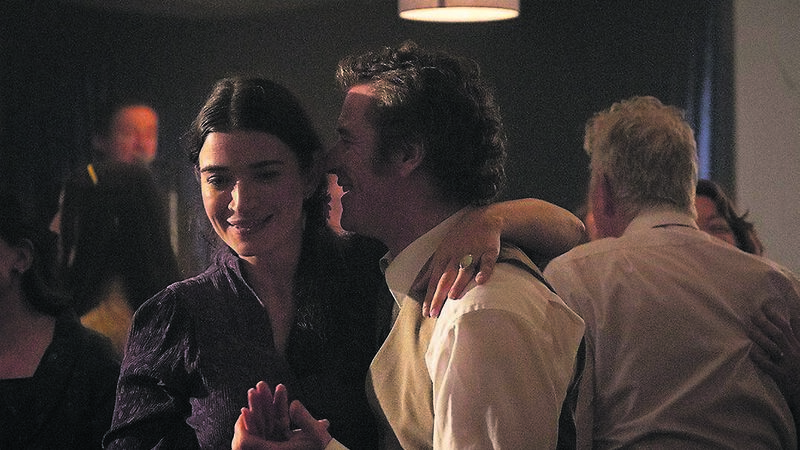Film review: Five star review for Cork man's debut film

A scene from That They May Face The Rising Sun, directed by Cork man Pat Collins.
THAT They May Face the Rising Sun is the sixth and final book by the acclaimed Irish writer John McGahren.
He is regarded as one of our best writers, and his take on rural life is simultaneously Irish and universal in its themes. McGahren died in 2006, aged 71, leaving behind a powerful legacy.
Amongst Women is perhaps his best-known book outside of literary circles, partly thanks to a 1998 miniseries adaptation. Rising Sun lands in cinemas this week and is about to eclipse its success.
The film has yet to open in cinemas but has already won awards, including Best Film at last week’s IFTAs and Best Irish Film at this year’s DFCC Awards at the Dublin International Film Festival.
It is directed by West Cork documentarian Pat Collins in his feature film debut. While some of Collins’s work is entirely true to documentary style, others, like Songs Of Granite, have elements that feel like they could be in a feature film. It is fair to say Collins has been building towards this moment, and with Rising Sun, he has taken his keen sense of observation from his documentary-making and transplanted it with ease.
The book is loosely based on McGahren’s life. He and wife, Annikki, returned to rural Ireland after living in London. Like the book, the film renames the characters, and McGahren and his wife become Joe (Barry Ward) and Kate Ruttledge (Anna Bederke).
Joe is a writer, and Kate is an artist. They have moved into Joe’s family home. It is the 1980s, and life in rural Ireland is quiet. The couple settle in well. Joe can write in peace and solitude, and Anna can work on her art. The only noise is the sound of the birds outside.
Their home is open to neighbours like Jamesie (Philip Dolan) and Mary Murphy (Ruth McCabe), but more importantly, it is a friendly haven for Patrick (Lalor Roddy), Johnny (Sean McGinley), and Bill (Brendan Conroy), the community’s old bachelors.
They come for a cup of tea, a bite to eat, or a chat. Bill and Patrick do odd jobs and Joe and Kate become the guardians of their neighbours, even Patrick, who can have a sharp tongue.
There is a moment where Patrick and Johnny recite lines from The Playboy Of The Western World. It shows how rural Ireland is steeped in theatre and Irish literature. A reminder, if needed, of the contribution of writers like McGahren.
The seasons change, and the film charts a year in the life of Joe, Kate, and their friends. Very little changes, but nothing stays the same. Life, its joys, and its difficulties fall on this quiet community.
Much like Colm Bairéad’s beautiful Oscar-nominated An Cailín Ciúin, Rising Sun is a quiet film. It is unhurried; there is space for silence and time for things just to be. The two films could almost be bookends of Irish life.
While An Cailín Ciúin focuses on family, Rising Sun is about community and that connection found particularly in rural communities.
The film captures the meaning of meitheal, that old Irish idea of a community coming together, particularly when times are hard.
While the film’s leads are excellent, there is something truly special about the ensemble actors. McGinley and Conroy are especially good, but Roddy blows them all away with a mercurial performance.
For years, I have thought him one of our finest actors, but he doesn’t get the recognition he deserves. Watching him in this is a masterclass; he tips a delicate balance between mischievous and mean.
Collins treats these older characters with so much respect. When I interviewed him, he spoke of the importance of allowing older rural characters to be treated with dignity, and he does this well. We are used to seeing older country fellas played as oddballs or bumpkins, but there is none of that here.
The film is rich in nature. Bird songs often form the soundtrack, and even a field of haystacks lit by the sun looks beautiful.
That They May Face The Rising Sun is a profoundly beautiful film that perfectly captures the essence of rural Ireland. It sees the men and women who make up our rural communities, understands who they are, and embraces the connection they share.
Collins has long been our best documentarian. We can add feature director to that. We have months to go, but I’ll say it now: You won’t see a better Irish film this year. A five-star beauty.







